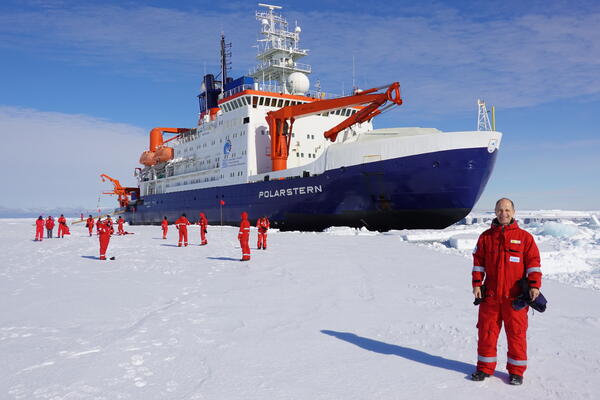
Why do good intentions often fail?
Research examines the gap between intention and action

Research examines the gap between intention and action
By Cherri Greeno Marketing and Strategic CommunicationsNew research from the University of Waterloo explains why our brains often fail to turn intention into action, and why this gap can be overcome.
Whether it’s turning down a plate of poutine or staying committed to a public vow to quit drinking, it’s not uncommon for want to defeat will.
The question is why?
“There is clearly a serious gap between how people act and their intentions,” says Paul Thagard, a professor of philosophy in the University of Waterloo’s Faculty of Arts and 2013 Killam Prize.

In the field of psychology, these are described as intention-action gaps.
Describing it as a weakness of will, Thagard says, presumes that the human mind has a type of organ that is responsible for the action but is weak like a muscle incapable of lifting a heavy weight. This idea, he says, is incompatible with scientific evidence.
Intention-action gaps occur, Thagard says, when the conscious aspect of our intentions get disrupted by unconscious, automatic ones, leaving us to respond to the environment around us. This happens when we have distractions in our life, such as being tired, hungry or stressed.
For example, if you are trying to lose weight and someone offers you a plate of poutine, your intention should be to say no. But if you are stressed, tired or hungry, you might say yes. If you know you shouldn't drink alcohol but someone offers you a drink on a particularly stressful day, you are more likely to take it.
“I always ask my class 'how many of you have had intentions that you didn’t go through with?” Thagard says. “They all nod. Everyone has intentions but they don't manage to accomplish what they set out to do.
“The question is 'why is it often that they don’t?' ”
In a new paper about intention, emotion and action recently published in the Cognitive Science journal, Thagard, and post-doctoral researchers Tobias Schröder and Terry Stewart describe intentions as neural processes that lead to behaviour as the result of complex interactions among different brain areas, including the prefrontal cortex, basal ganglia, amygdala, anterior cigulate and motor areas.
It is possible to bridge the intention-action gap, however. Thagard says behaviour can be improved by a technique called implementation intentions — cognitive rules that take an environment cue and turn it into a commitment to a particular course of action. In other words, if you can anticipate the specific plan of action required to stick to your commitment, your original intention has a better chance of success.
So, if you anticipate someone may offer you that plate of poutine, you can prepare yourself to decline politely and eat something healthy instead.

Read more
English professor reflects on the innovative field of children’s literature and the challenges of writing and publishing picture books

Read more
Waterloo researcher Dr. Mikal Skuterud explains how immigration policy must shift to address productivity needs in Canada

Read more
Waterloo professor captures valuable experiential knowledge generated through interdisciplinary collaboration
The University of Waterloo acknowledges that much of our work takes place on the traditional territory of the Neutral, Anishinaabeg and Haudenosaunee peoples. Our main campus is situated on the Haldimand Tract, the land granted to the Six Nations that includes six miles on each side of the Grand River. Our active work toward reconciliation takes place across our campuses through research, learning, teaching, and community building, and is co-ordinated within the Office of Indigenous Relations.